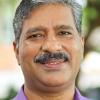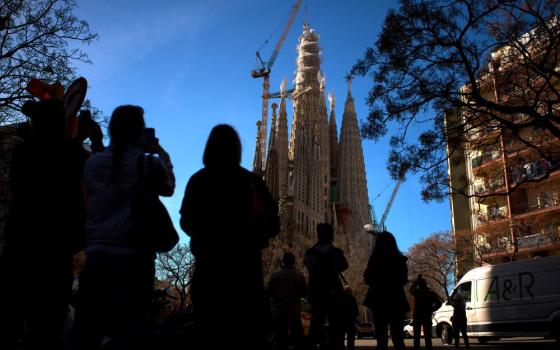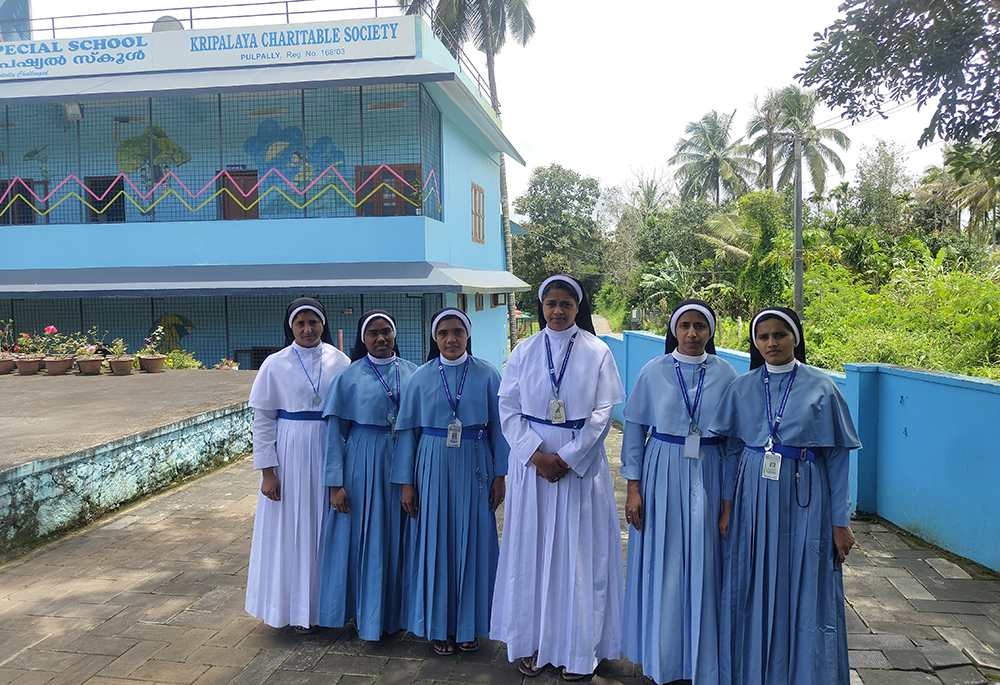
A group photo includes the nuns serving the Kripalaya Special School at Pulpally, Wayanad, Kerala, southwestern India. From left: Srs. Diya Koodalil, Jia Maria Poomkottil, Serin Kochuthazhathu, Anseena Memadathil, Anntreesa Paradiyil, and Tissa Koottiyanikkal. (George Kommattam)
Kripalaya Special School, managed by the Sisters of the Adoration of the Blessed Sacrament, is celebrating 25 years of providing education and life skills to children and adults with physical and intellectual disabilities from impoverished families.
In 2010, the Kerala state government honored the school at Pulpally, a town in Wayanad district of Kerala, as the best "special school."
Global Sisters Report recently spoke with Sr. Anseena Memadathil, the school headmistress since 2008, about the institution's journey, programs, challenges and impact on the local society. According to Memadthil, the school started with just five students, and has now cared for 360 children, including 139 currently enrolled. The school cares for children as young as 3, but also assists several adults as old as 50 without family support.
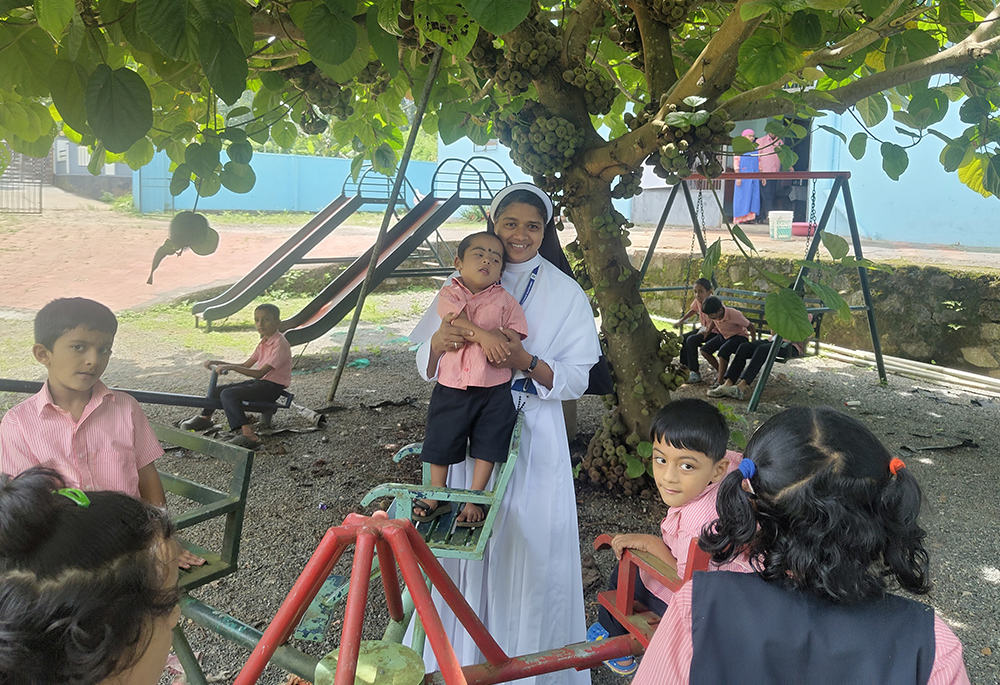
Sr. Anseena Memadathil interacts with children at the park on the Kripalaya Special School premises at Pulpally, Wayanad, Kerala, southwestern India. (George Kommattam)
GSR: Tell us about Kripalaya Special School.
Memadathil: This is one of the leading "special schools" in Kerala. The school was started in 2001 by Sr. Josilia Kizhakkechalil, our provincial at that time.
We have 27 staff members, including 21 teaching staff and six non-teaching staff. Among them, 16 are members of our Mary Matha province, based in Mananthavady.
As we now enter our silver jubilee year, we are deeply grateful to God for giving us this mission. If Kripalaya had not been started, many of these children would still be tied to their homes, with little chance of learning life skills or experiencing independence.
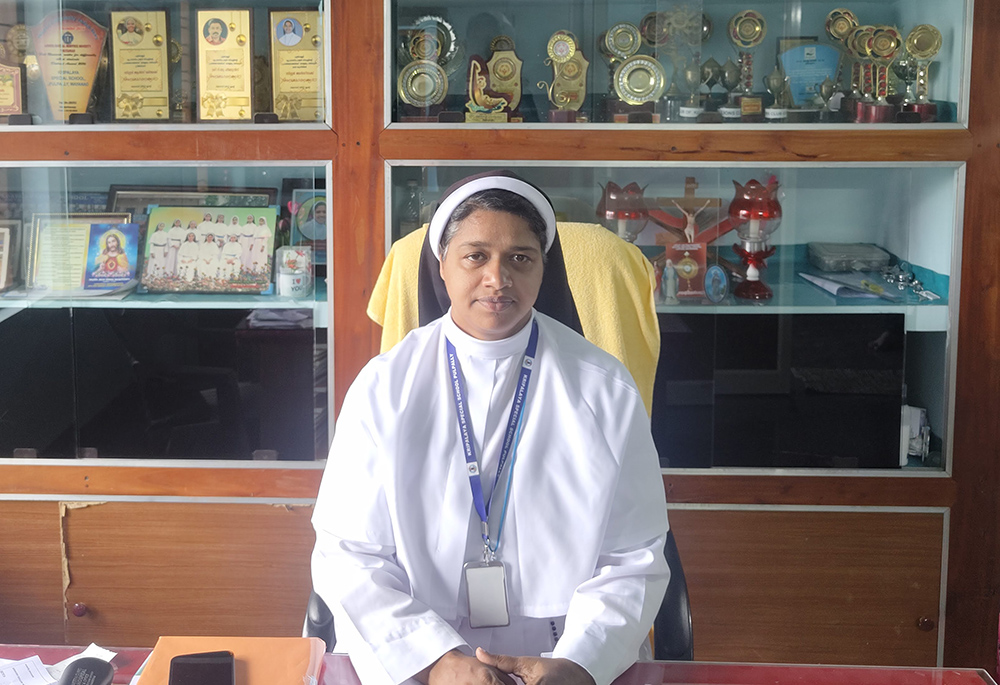
Sr. Anseena Memadathil is pictured at the Kripalaya Special School, Pulpally, Wayanad, Kerala, southwestern India. Memadathil has been the school headmistress since 2008. (George Kommattam)
Why did your congregation start this school?
We began this mission as part of our social service commitment. We realized that there were many schools, but few in this area are for children with disabilities.
Over the years, we have observed that our school helps not just the children, but their families and the wider community. It provides relief for parents who would otherwise struggle alone and gives the children opportunities they could never have found elsewhere.
What activities and programs does Kripalaya offer?
We provide not only academic education but a wide range of skill-based activities. Our students learn music, farming, craft-making and bookbinding, helping them live more independent lives.
The students are taught to make cleaning materials, LED bulbs and other useful items. We also train them in computer use, vegetable farming, sports and games. We teach children bookbinding and craft-making. Our children's band is very popular.
These programs help our students build confidence, support their families and even earn their own income.
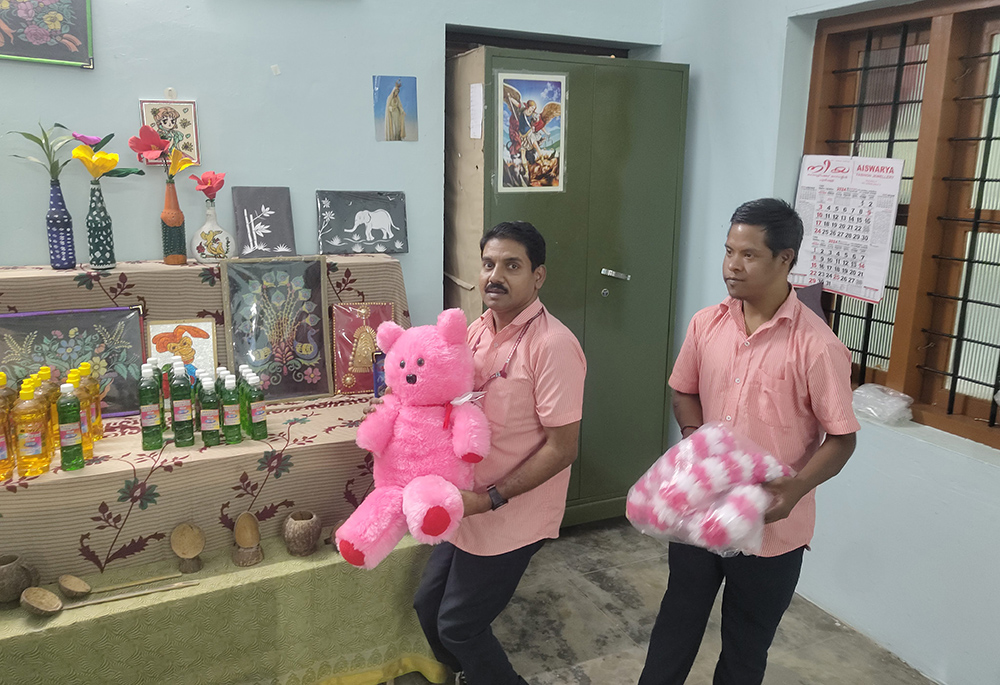
Ajith Kumar and Vinod Kumar, who both attend Kripalaya Special School, Pulpally, Wayanad, Kerala, southwestern India, showcase their creative works in the school's training room. (George Kommattam)
What else do you offer?
We offer several therapies essential for their growth and development. These include early intervention therapy, speech therapy, physiotherapy, behavioral therapy and developmental therapy. Every student receives guidance and support according to his or her needs.
I believe we are the only "special school" in Kerala that uses a teaching app recommended by the Kerala government. This modern, data-driven teaching approach adjusts learning experiences to meet the needs of each student.
Advertisement
How do you help children and adults become independent?
We follow an individualized education program for each student. We teach life skills step-by-step, focusing on what each student needs the most. We encourage them to take part in cultural and sports events and daily quiz programs.
We also conduct awareness classes for parents and teach them how to take care of their children and [address] problems.
We ensure that each student is matched with an activity that fits their talents and interests. For example, children who love music are placed in the band, while those with a taste for crafts are guided into handicrafts work or jewelry making. Every student is given a responsibility, and this often leads to a small income for them.
Parishes invite our band to perform at feasts. They get paid, and the money is deposited into their bank accounts. They also earn by selling what they produce — cleaning products, jewelry, handicrafts and vegetables.
In this way, they not only gain life skills but [also] learn the value of earning and contributing to their families.
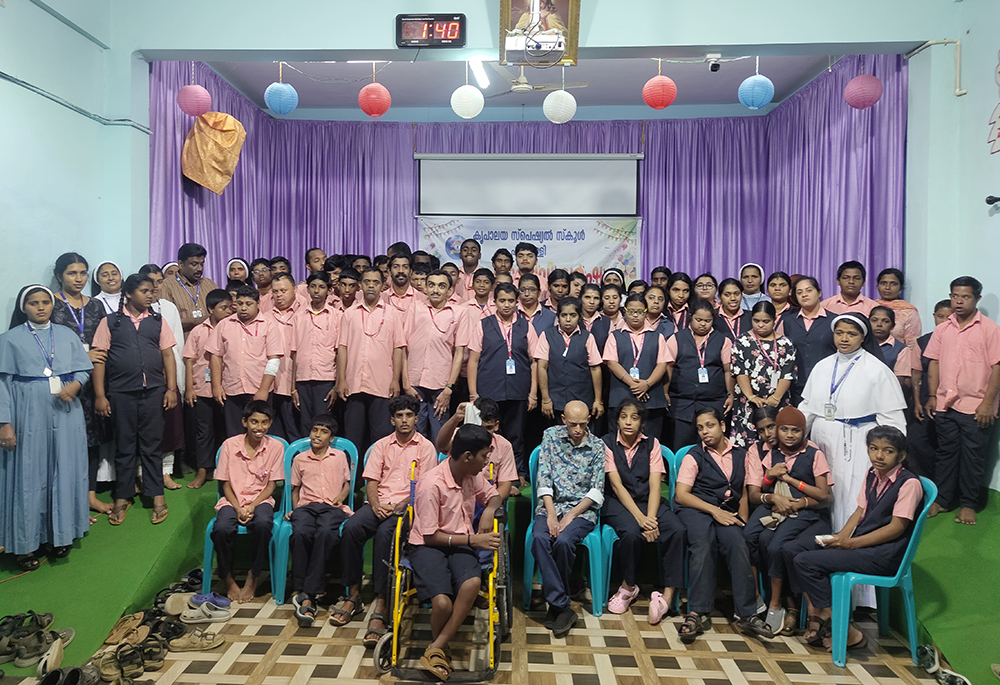
Students of Kripalaya Special School at Pulpally, Wayanad, Kerala, southwestern India, pose with their teachers for a group photo at the school auditorium. (George Kommattam)
How do you help the children cope with daily challenges?
We help them practice daily skills repeatedly until they become confident. Each child is guided individually according to his or her needs.
One of our special initiatives is the Samyojitha Sahavasa (Integrated Residential) Camp, which brings together children from public schools and children from schools with disabilities. This interaction gives our children the chance to meet and learn from public school students. At the same time, it creates compassion and awareness among other students, who see the strengths and struggles of our children.
The school also runs a scouts and guides group. We celebrate important days, such as Yoga Day, and organize daily quiz competitions.
What changes have you seen over the years? Any success stories?
I have seen remarkable changes. Many children and adults arrive needing someone to lean on literally, but they leave with no outside help.
They learn to write their names and develop skills that help them in their lives. Some have even taken public examinations with the help of scribes and done very well.
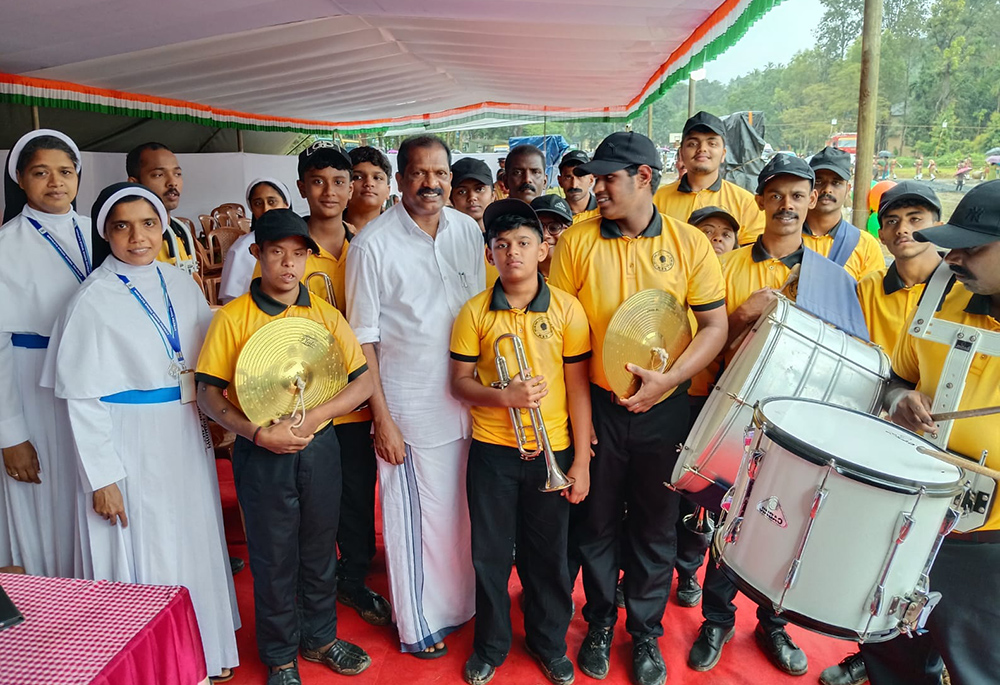
The band at the Kripalaya Special School in Pulpally, Wayanad, Kerala, southwestern India, with O.R. Kelu, Kerala minister for the Welfare of Scheduled Castes, Scheduled Tribes and Backward Classes, at the Wayanad District Collectorate on Aug. 15, after their Independence Day performance. (Courtesy of Sr. Anseena Memadathil)
One inspiring story is that of Ajith Sabu Vellappilly, a gifted musician who now performs on our YouTube channel, Kripalaya Voice. He is autistic, but can sing, play instruments, and speak English and Hindi. When Rahul Gandhi [India's opposition leader] visited us in February 2022, Ajith conversed with him in Hindi. Soon after, Gandhi donated a school bus to us.
Another student earned money through band performances and used it for her father's cancer treatment.
Some students bought mobile phones with their income, while others now work in hotels, textile shops and service industries.
Each of these stories shows how our students have become blessings to their families and valuable members of society.
You said Kripalaya benefits the families and the wider community. How?
For parents, the school has been a blessing. Many of them could not leave their children alone at home and were unable to work. Now, they feel secure leaving their children with us, even beyond school hours if necessary. This has given them peace of mind and the freedom to earn a livelihood.
The local community also supports us in many ways. Neighbors sponsor meals, donate furniture and celebrate festivals with our students. Kripalaya has become a household name in this area, and people are proud to be associated with it.
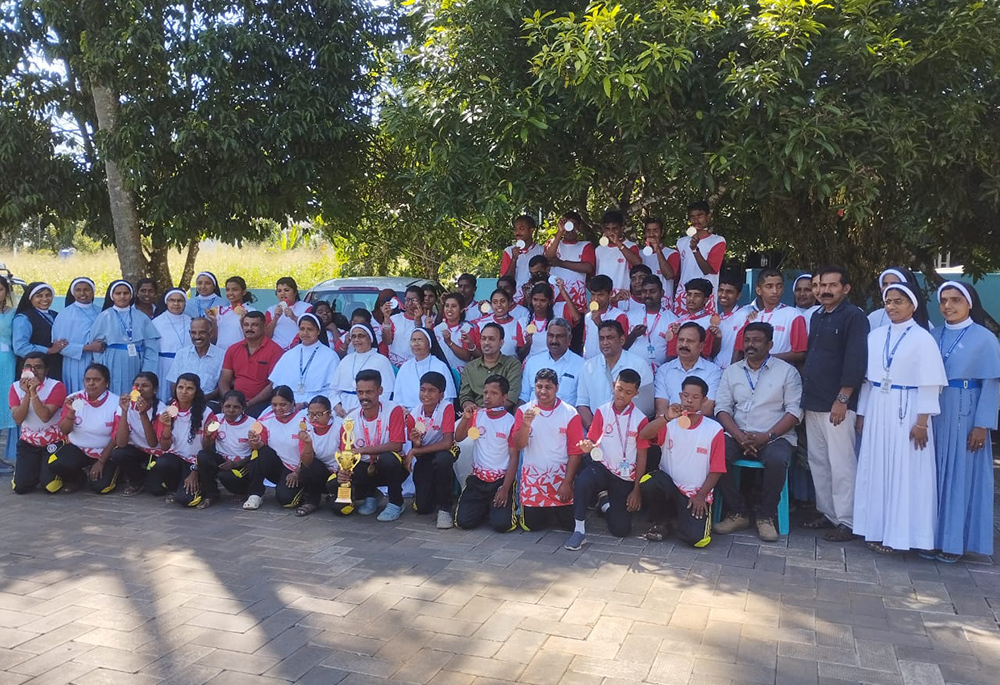
The Kripalaya Special School sports team, winners of the 2024 Special Olympics held in Wayanad, pose with their teachers. (Courtesy of Sr. Anseena Memadathil)
We guide families in accessing government benefits and subsidies for their children. We help them complete the paperwork and connect them with government organizations. We also help them access the benefits offered by diocesan charitable organizations.
The school has brought positive energy into the community and created a culture of compassion and generosity.
What are some challenges you face in managing this school?
Our greatest challenge is financial. The school receives only a small amount from the government. Yet we provide everything — education, therapy, food, travel and uniforms — completely free of charge. Salaries, food and other expenses are paid by our congregation. Some generous people also help.
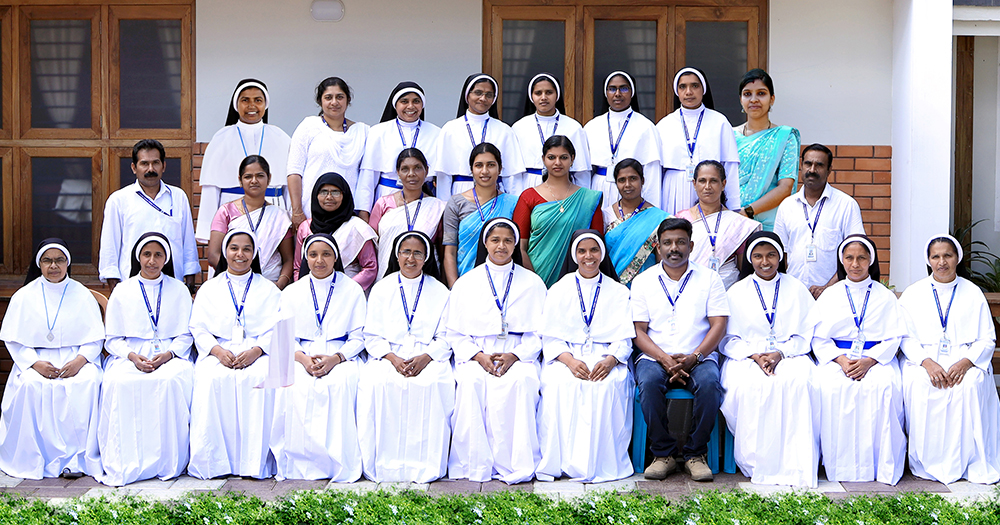
The teaching and non-teaching staff of Kripalaya Special School in Pulpally, Wayanad, Kerala, southwestern India (George Kommattam)
What are your post-jubilee plans?
Looking ahead, my dream is to turn Kripalaya into a lifelong care project. Many parents worry about their children after they pass away. We want to create a system that will look after our students for life.
My children and adults always share their ambition of traveling on an airplane. My prayer is that in this Jubilee year, with the help of generous people, we can make that dream come true.
